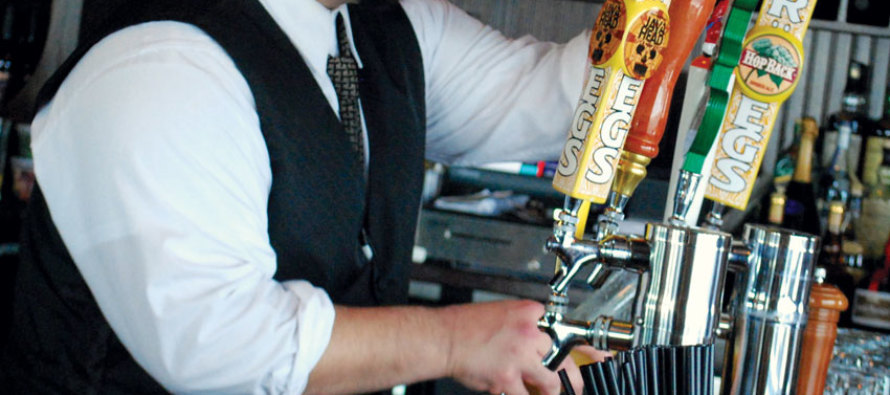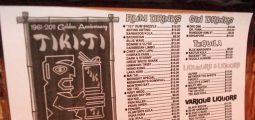The Industry Choice: Provide Service or Be Servile

The professional bartender of the Pre-Prohibition era was a respected and skilled tradesman, working only with preferred spirits, hand-cut (or hand-crushed) ice, fresh ingredients, house-made tonics, syrups, and tinctures. He was a manager, a bookkeeper, a quasi-psychologist, a storyteller and entertainer. She had the daily news. His repertoire ran the gamut of liquor, beer, wine, coffee, tea, and tobacco. She was a true service professional who provided a hospitality experience alongside his products, and he did so with a smile. Between 1920 and 1933, Prohibition nearly caused the extinction of the American bartender. The vast majority of professional bartenders of the era either relocated to a place where they could legally work, or simply sought other employment. A few, however, remained employed underground and/or contributed to the progression of cocktail culture as writers.
As the Post-Prohibition professional bartenders began to re-populate, they did so with a weakened community skill set, the result of over a decade of lost mentorship. Traditional methods gave way to readily available, commercial mixers. Synthetic preservatives and artificial sweeteners hijacked the American palate. Skill gave way to more cost-effective, profit margin-driven models. The resultant industry status quo all but eliminated the demand for quality products, let alone the true service experience. The professional bartender was demoted to ‘drink-slinger’.
Something that our industry needs to take ownership of is the fact that for decades we have gotten away with charging an excessive product mark-up without any real justification. Sure, there is the rent and the utilities, but a significant part of our profit margin includes (in theory) a charge for training staff members who are able to provide a memorable service experience. Whether you work a dive bar, or deal in craft beer, wine, or fine spirits, you should be able to talk about your products and know how to use them. We are the only industry that gets away with selling a product that we know nothing about…and gets tipped to do so. We cannot be upset, then, that Joe Public shows up and reserves the right to behave poorly when you don’t carry his favorite beer, or his favorite sports channel is not available. We have created this public monster (that we so often like to complain about) because, out of laziness and greed, we exchanged ‘service’ for ‘servitude’. If we want our patrons to respect us, we need to earn it.
Our time is up. As consumers gain greater access to information through online resources, travel, and social media, quality products and service are back in demand. As we continue to correct our path, and to re-establish the reputation of our profession, two things happen. 1) We can feel good about the prices we charge, because we are actually providing something in addition to the products. 2) We re-establish service (as opposed to servitude), where we don’t have to be for everybody. In an environment where people come for products and the service experience, you regain control of that environment. If you are protecting an environment for a specific demographic to enjoy, then you do not have to tolerate demands for products outside of that scope, and you do not need to tolerate behavior that is disruptive to it.
Yes, providing actual service is harder than being servile, but in our industry, it is the provision of service that emancipates us from a position of servitude. Our skill set frees us to choose our consumer. If you reduce the only possible complaints to things that fall outside the scope of your target demographic, you win. Not even Yelp has power against an environment that is focused and delivers what they set out to deliver. It is time to take our industry back.
No comments
Write a commentOnly registered users can comment.












